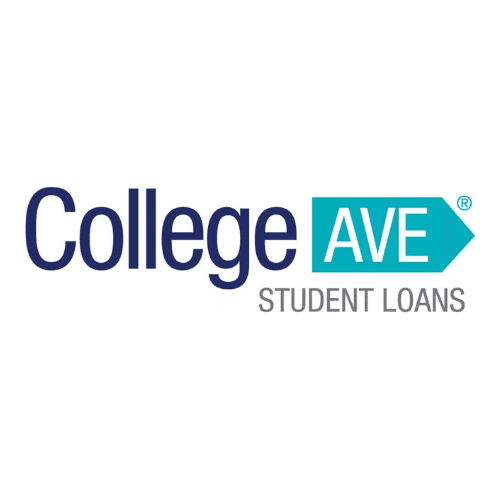6 Best Lenders To Refinance Student Loans with a Cosigner
Refinancing your student loan with a cosigner may lead to better rates, lower monthly payments, and higher approval odds. We look at the best lenders that can refinance student loans with a cosigner.

You can use a credit-worthy cosigner to refinance student loans to get better terms and improve your chances of approval.
A cosigner takes equal responsibility for the loan if you can’t pay back the lender, so it may reduce the risk for the lender and get you better terms. Adding a cosigner can also help some students meet certain eligibility criteria generally related to income and credit requirements which might be hard to meet otherwise. The cosigner remains responsible for the loan till it is fully repaid, or the lender approves a cosigner release.
Here are our top choices for lenders that refinance student loans with a cosigner, along with their terms, rates, and eligibility requirements.
Lenders To Refinance Student Loans With a Cosigner
| Lender | Scholaroo rating | Fixed rates starting (APR) | Variable rates starting (APR) |
|---|---|---|---|

Sallie Mae Sallie Mae has the best loan limit policies Visit website | 4.50% | 5.99% | |

College Ave College Ave has the best repayment terms Visit website | 4.44% | 5.09% | |

Citizens Bank Citizens Bank is best for cosigner policies Visit website | 4.43% | 6.03% | |

Ascent Ascent is best for international students Visit website | 4.62% | 5.98% | |

MEFA MEFA offers the most accessible loans Visit website | 5.35% | N/A | |

Earnest Earnest is best for its transparent eligibility requirements Visit website | 4.45% | 5.32% |

Sallie Mae
Sallie Mae has the best loan limit policies

College Ave
College Ave has the best repayment terms

Citizens Bank
Citizens Bank is best for cosigner policies

Ascent
Ascent is best for international students

MEFA
MEFA offers the most accessible loans

Earnest
Earnest is best for its transparent eligibility requirements
1. Sallie Mae
2. College Ave
3. Citizens Bank
4. Ascent
5. MEFA
6. Earnest
What Is Student Loan Refinancing?
Student loan refinancing is when you take out a new student loan to replace one or more existing student loans. You typically refinance a loan to get better loan terms.
Refinancing student loans with a cosigner has a few advantages:
- Better Interest Rates: With a cosigner who has a strong credit profile, you may be able to obtain a more favorable interest rate, thereby reducing your monthly payments and total interest cost over the life of the loan.
- Easier Qualification: If your creditworthiness alone doesn’t meet the lender’s criteria, a cosigner may make it possible for you to qualify for refinancing.
However, there may be some drawbacks to consider:
- Cosigner Risk: The cosigner is equally responsible for the loan. If you default, the cosigner’s credit can be affected. This shared responsibility should be considered and discussed thoroughly with your cosigner.
- Limited Flexibility: Some refinanced student loans may not offer the same protections and flexibility as federal student loans, such as income-driven repayment plans.
Refinancing a student loan with a cosigner can be a wise move if it leads to a significant reduction in interest rates or if it aligns with your financial goals. However, both parties should understand the responsibilities and potential risks involved.
How To Refinance Student Loans With a Cosigner
- Evaluate Your Needs and Goals: Determine why you want to refinance and what you hope to achieve, such as a lower interest rate or a shorter loan term. Understanding your goals will guide your decision-making throughout the process.
- Choose the Right Cosigner: Select a cosigner with a strong credit history and financial stability. This person should be someone you trust and who understands the responsibilities involved in cosigning a loan.
- Research Lenders: Investigate various lenders, both online and traditional banks, to find the best rates and terms that suit your needs. Look for lenders who accept cosigners for refinanced student loans.
- Collect Necessary Documentation: Prepare all required documents such as proof of income, credit reports, and information about current student loans. Both you and your cosigner will likely need to provide these documents.
- Complete the Application: Fill out the application for refinancing with your selected lender. Both the primary borrower and the cosigner must provide information and sign the application.
- Review Loan Terms: Carefully review the new loan’s terms, including the interest rate, repayment plan, and any fees. Make sure both you and your cosigner understand and agree to these terms.
- Consider Cosigner Release Options (If Applicable): Some lenders offer a cosigner release option after a certain number of on-time payments. If this is important to you or your cosigner, inquire about this feature with your chosen lender.
- Finalize the Refinancing: Once approved, sign the new loan agreement with your cosigner. The new lender will pay off your existing loans, and you’ll begin making payments on the refinanced loan.
- Maintain Communication with Your Cosigner: Keep an open line of communication with your cosigner, updating them on the loan’s status and any changes that may occur in the future.
How Do I Get Out of a Cosigned Student Loan?
Many lenders offer a cosigner release option that helps cosigners get out of a cosigned student loan.
During the loan term, if the primary applicant becomes able to meet all the requirements on their own, they can apply for a cosigner release which releases the cosigner from the loan contract. To get a cosigner release, at least 12 on-time payments must have been made on your refinanced loan and the primary applicant must meet the credit requirement of the lender independently.
Alternatives to Refinancing Student Loans With a Cosigner
If you are considering refinancing your student loans but either don’t have a cosigner or prefer not to include one, there are several alternatives available:
- Improve Your Credit Score: If your credit score is a concern, taking steps to improve it may enable you to refinance without needing a cosigner. Paying bills on time, reducing debt, and correcting errors on your credit report can boost your score.
- Exploring Different Lenders: Different lenders have varying criteria and may offer unique loan products. Shopping around and comparing offers might lead you to a lender who is willing to refinance your loans without a cosigner and at favorable terms.
- Federal Loan Consolidation: If you have federal student loans, you might consider federal loan consolidation. This combines your existing federal loans into a single new loan with an interest rate based on the weighted average of the loans being consolidated. Unlike refinancing with a private lender, consolidation doesn’t require a credit check, so a cosigner is not necessary.
- Income-Driven Repayment Plans: For federal student loans, you may qualify for an income-driven repayment plan. This option can adjust your monthly payments based on your income and family size, offering flexibility without the need for a cosigner.
- Utilizing Employer Benefits: Some employers offer student loan repayment assistance as a benefit. If available, this assistance might reduce the need to refinance and the accompanying requirement for a cosigner.
- Applying for Individual Refinancing: If your financial situation is sound, you may qualify for refinancing on your own without a cosigner. It’s worth discussing your options with potential lenders to determine your eligibility.
FAQs
Can I use a cosigner to refinance student loans?
Yes, you can add a cosigner when refinancing student loans. In cases where the primary borrower and cosigner agree, they can jointly apply for a new loan to replace the existing one. The refinanced loan might offer better terms, especially if the cosigner has strong credit. It’s essential for both parties to understand and agree on the terms, as they will share responsibility for the loan.
Do you need a cosigner to refinance student loans?
No, having a cosigner is not a requirement to refinance student loans if the primary applicant can meet all the requirements independently. However, a cosigner may be beneficial regardless if the primary borrower’s credit profile is not strong enough to secure favorable terms independently.
Can a cosigner be taken off a student loan?
Yes, a cosigner can often be removed from a student loan, depending on the terms of the loan. Many lenders offer a cosigner release option after the primary borrower has made a certain number of consecutive, on-time payments and meets other credit criteria. It’s crucial to review the specific terms of your loan or consult with your lender to understand the process and requirements for cosigner release.
Does it hurt your credit to cosign a student loan?
Most private refinancing lenders carry out a credit check on both the primary applicant and the cosigner. This results in a hard query that can hurt the credit score temporarily by 10 points at most.








